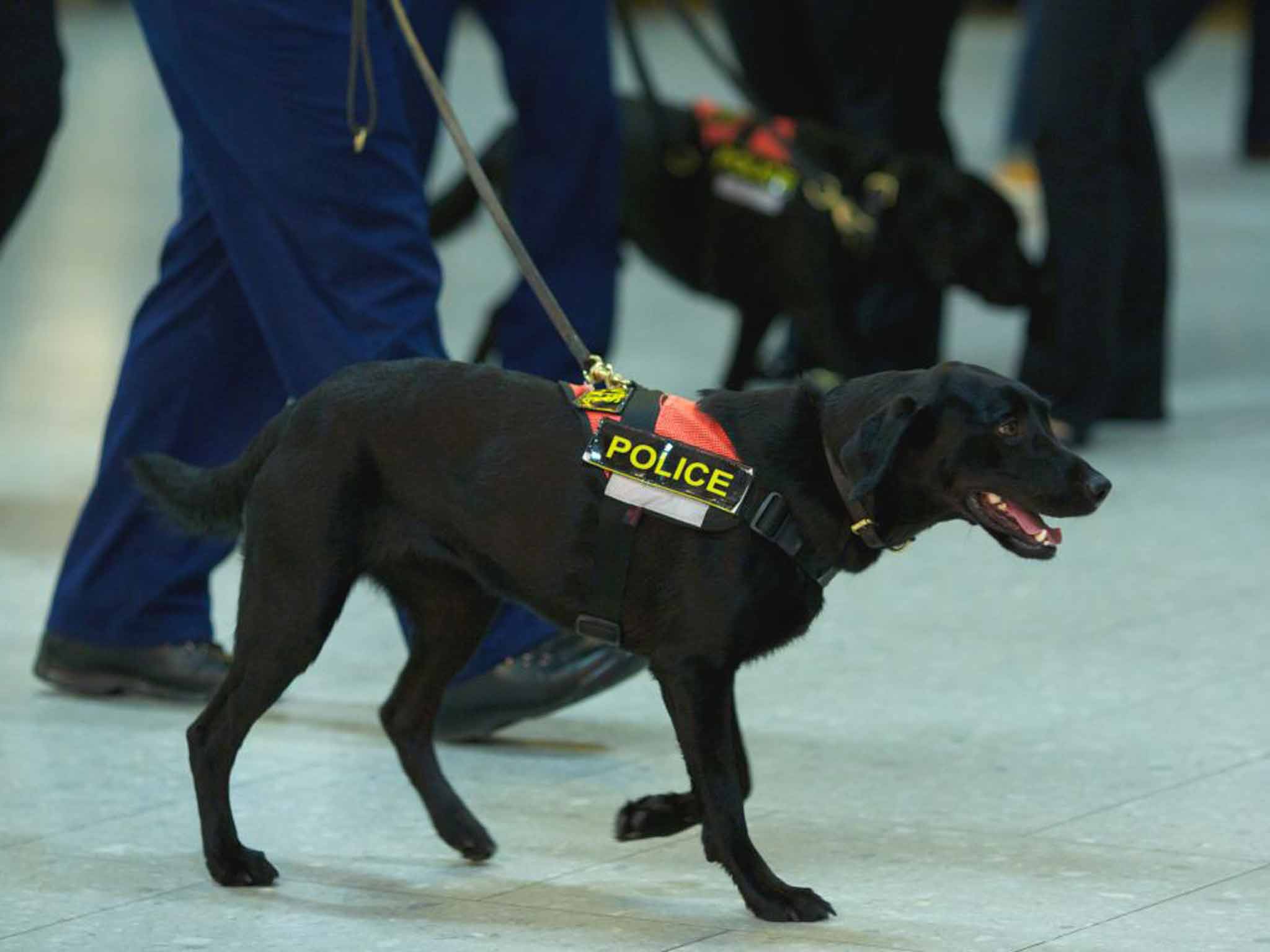Calais crisis prompts a recruitment drive for police sniffer dogs and handlers
To catch illegal immigrants at the Eurotunnel depot in Calais, the PM has promised more sniffer dogs. But if he wants them in a hurry, says Gillian Orr, he can go whistle

With tensions mounting in Calais, David Cameron was forced to issue a statement about just how he plans to tackle the illegal migrant crisis. His solution? More fencing, more resources and extra sniffer dog teams.
"We rule nothing out in taking action in dealing with this very serious problem. We're absolutely on it," he confidently said at the close of his speech.
Unfortunately, the Prime Minister had failed to inform Wagtail UK, the sole supplier of detection dogs to the UK Border Force, that they'd be needing some more canines. In an embarrassing show of miscommunication for the Government, the Welsh–based firm said they were yet to be contacted by anyone. The company, which also provides dogs for drug, firearm, and tobacco detection, has held the contract since 2008 and earlier this year was awarded another five years. It has the only body-detection dog teams in the country.
It may have taken a couple of days for the message to get to Wagtail since last Friday's speech, but the company now appears to have mounted a frantic hunt for more dogs. The vacancies section of its website is calling for "New K9 Recruits" (which must be of working dog breed, have high drive and enthusiasm, and be between one and three years old) as well as "Experienced Detection Dog Handlers" who should expect to be posted across the Channel. The company has even put out an urgent appeal on Twitter for suitable dogs.
For handlers, it's not a bad gig. The shift pattern is seven days on followed by seven days off, with a starting salary of £26,137.50, and a generous annual leave of 42 days. It might be slightly trickier, however, to find enough of their four-legged friends that are already trained to detect the presence of concealed human scent. Wagtail UK has been asked by the Home Office not to speak to the press about its dogs, but other sniffer dog agencies happily spoke to me about the extensive work needed to get dogs primed and ready.
"Different breeds learn at different speeds," says Tony Foster, the director of operations at RFA Security Services, which provides both explosive detection dogs and security patrol dogs. "They have their own personalities and can have good and bad days. But it's a lot of work to get a dog trained, and many who start the course won't finish it."
Typically, the best dogs to teach are between 12 and 14 months but anything up to two years is considered. And they'll need to go through roughly 150 hours of training with a handler. Although the methods for different detection targets don't wildly differ (the reward for good work is simply a tennis ball or similar), the dogs are trained with one very specific scent in mind, so the finest cadaver detection dog in the country is going to be no good at sniffing out a living body.
While a number of handlers come from previous careers in the armed forces, civilians looking for a change of direction can be taken on (although agencies look for people who have some form of dog experience already, and, again, they have to put the hours in).
"We usually do a two-day assessment of the handler to see if they have the aptitude and ability to be taught and get the best out of the dog," says Foster. "Then, if they are, they can go on a course. It costs, though."
There is only a handful of companies that deal with sniffer dogs in this country. RFA Security went for the Border Force gig, but lost out to Wagtail.
"I don't have working knowledge of how they operate their system, but we were thinking how the hell is he [Collin Singer, Wagtail's managing director] going to provide all that. I should think he's tearing his hair out," says Foster.
But as Marcel Bonnefin, managing director of another sniffer dog firm, Top Dog Security, points out, maybe the Government's proposed solution to Calais has slightly missed the point.
"The reality right now is they don't need more sniffer dogs," says Bonnefin. "You can see the hordes of people approaching the fences. No-one's hiding. Body-detection dogs are null and void at this stage."
